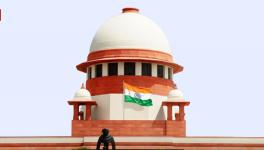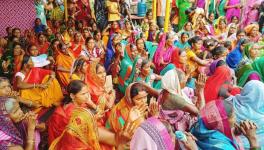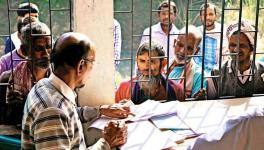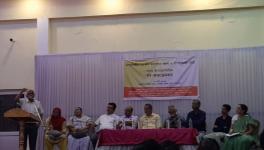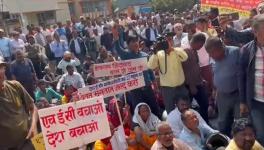12 Die Of Hunger In 10 Months, Jharkhand Government In Denial: Right To Food Campaign
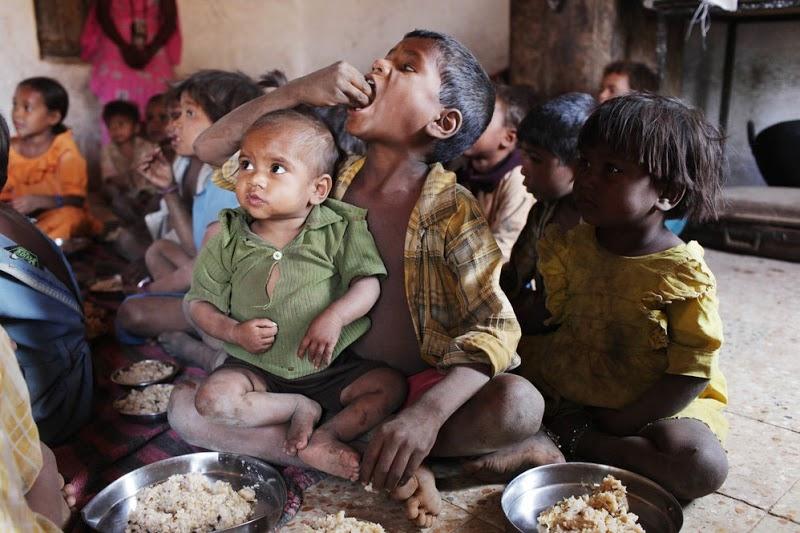
The poor are literally starving to death in Jharkhand — at least 12 people have died due to starvation in the past 10 months in the state. But the BJP-led state government is refusing to even acknowledge hunger as the cause of these deaths, let alone taking responsibility.
The Right To Food Campaign (RTFC) released details of these starvation deaths, along with fact-finding reports, on 21 June 2018 — while holding the government accountable for failing to act and making false claims in the face of flagrant violations of the Right to Food of the people.
According to the RTFC findings, the reasons for these deaths have invariably been a failure in the delivery of ration, and/or pension in some cases. In most of these cases, the ration or pension was denied due to problems engendered by the mandatory linkage and authentication with Aadhaar.
“The starvation deaths have exposed the exclusion of poor households from the Public Distribution System (PDS) and the alarming levels of food insecurity in the state,” it said.
Read More: Starvation Deaths Continue: Jharkhand Woman Dies After Starving For Three Days
But instead of taking action to address the problems, state food minister Saryu Roy has been busy making “a series of fallacious claims and accusations against activists who are highlighting the gross violations of right to food in Jharkhand,” said the Right To Food Campaign in a statement.
Three of these starvation deaths occurred in June alone. “The recent deaths of Savitri Devi in Giridh, Meena Musahar in Chatra and Chintaman Malhar in Ramgarh expose the government’s lack of seriousness to address the issue of starvation in the state,” the RTFC said. “Even after a spate of deaths before these three victims, the government took negligible cognizance of the alarming situation.”
The first starvation death in Jharkhand to make headlines last year was that of an 11-year-old girl, named Santoshi Kumari, who died of hunger on 28 September 2017 in Simdega district after her family’s ration card was cancelled as it was not linked to Aadhaar. Santoshi had not eaten for eight days before she died.
Elaborating on the details of the three latest hunger deaths, the Right To Food Campaign statement said: “Savitri Devi, a 60-year old widow, died on 2 June 2018 after prolonged hunger and inadequate nutrition. Her family members do not remember the last time they cooked dal.”
The RTFC said that Savitri Devi’s family did not have a ration card, “despite applying for one at the Gram Panchayat a few months ago.”
Read More: Right to Food Being Violated, Worsened By Aadhaar, Say People At Public Hearing
With this finding, the RTFC also refuted the state government’s claim that Savitri Devi’s family did not apply for a ration card. The Campaign also said that contrary to another claim made by the government, “Savitri Devi was never admitted in RIMS Ranchi for treatment.”
In fact, the RTFC said, even though her widow pension was sanctioned in 2014, “the first pension instalment was credited only in April 2018 after her Aadhaar was linked with the scheme. Savitri Devi was not informed that her pension was credited.”
Then there was 50-year-old Chintaman Malhar of Mandu block in Ramgarh district who “died a hungry man” on 13 June.
Chintaman too did not have a ration card, but the government officials “tricked Chintaman’s son into signing a statements that told a different tale,” said the RTFC.
“Not surprisingly, the Food Minister later claimed that the son himself admitted that his father died a natural death. His insensitivity towards the issue was also reflected when he suggested that the victim’s body be exhumed for post-mortem. He interpreted the son’s refusal for this as a proof that the victim did not die of starvation.”
Then there was the death of Meena Musahar, a ragpicker in Chatra district, who died “in destitution and acute poverty”.
According to Meena’s neighbours, said the RTFC, “she was so malnourished that she could not feed her infant child who died a week before her.”
Meena did not have a ration card. But the Jharkhand government conveniently absolved itself of responsibility as she may have been a migrant from Gaya in Bihar who came to Jharkhand in search of livelihoods.
In fact, “the Food Minister even said that his department was not responsible for the starvation death of persons who did not have ration cards.”
Read More: Aadhaar Hearings: 10 More Reasons To Be Worried About The Act
“Contrary to government’s claims, the immediate causes of the 12 recent starvation deaths include denial of subsidised rice due to absence of a ration card, cancellation of ration card due to absence of Aadhaar linkage or failure of Aadhaar-based biometric authentication,” said the RTFC statement.
“It is true that many of the starvation victims were also ill, but they would probably not have succumbed to hunger if they received adequate nutrition and medical care.”
The RTFC pointed out that denial of social security pensions and absence of work under the National Rural Employment Guarantee Act (NREGA) contributed to the starvation deaths and the destitution of the families of the deceased.
At least four of the victims were entitled to pension, “but were either not issued a pension or did not receive their pension due to administrative lapses or Aadhaar-related issues.
The activists also raised questions on the coverage of the Antyodaya Anna Yojana (AAY) — a Government of India scheme launched in December 2000 whereby millions of the poorest of the poor families are identified from among the Below Poverty Line (BPL) families covered under the targetted PDS and given foodgrains at a highly subsidised rate of Rs 2 per kg for wheat and Rs 3 per kg for rice.
The RTFC said that the families of most of these people who died of hunger, “despite living a life of acute poverty, did not have AAY ration cards.”
But the Food Minister has instead proposed setting up of grain banks, said the RTFC. “Even if such banks are established, they will fail to ensure universal access to food security as a matter of right.”
In light of the tragically avoidable deaths of the poorest and the continuing violations of the Right to Food, the RTFC activists have demanded the universalisation of the Public Distribution System in rural areas. They have also demanded “inclusion of pulses and edible oil in the PDS — a promise made by the Food Minister himself.”
The Right To Food activists have also reiterated their demand that the government immediately delink the Aadhaar from the PDS as well as from other public services, and also that it “strengthen the grievance redress system to be established under the National Food Security Act.”
The Campaign has also demanded immediate withdrawal of the “Direct Benefit Transfer for food security” pilot in Nagri block of Ranchi district.
Drawing attention in their reports to the failure of this Direct Benefit Transfer pilot for food security, the activists said the state government’s reluctance to withdraw the pilot revealed the government’s indifference towards people’s food insecurity.
“By all accounts, the results of the pilot are disastrous. However, the Food Department is yet to roll back this pilot or compensate ration cardholders who are denied their legal entitlement to subsidised foodgrain in this ill-conceived initiative. In fact, it has even failed to make public the findings of the government’s own social audit of this pilot.”
Get the latest reports & analysis with people's perspective on Protests, movements & deep analytical videos, discussions of the current affairs in your Telegram app. Subscribe to NewsClick's Telegram channel & get Real-Time updates on stories, as they get published on our website.










